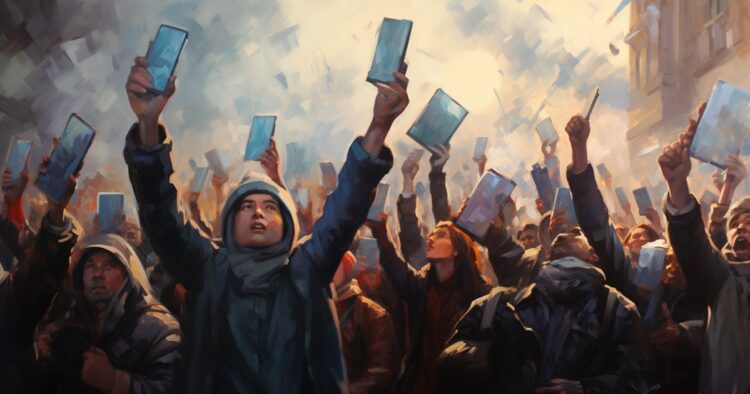In recent weeks, there has been a significant shift in the types of apps dominating the Apple and Google Play stores in Russia. Previously, popular apps mirrored those found in Western countries, with Zoom, Telegram, and Instagram topping the charts. However, a sudden change has occurred, with tools aimed at concealing users’ locations now taking the lead. Data from Data.ai, which monitors app downloads globally, reveals that on March 8th, the top three apps in Russia were designed to disguise users’ locations, primarily through the use of virtual private networks (VPNs).
This surge in demand for privacy-focused software coincides with a crackdown on online freedom by the Russian government led by Vladimir Putin. The situation escalated on March 4th when Russia blocked access to Facebook in response to the social media platform imposing restrictions on Russian state-controlled media. Twitter has also faced accessibility issues reported by Russian users, while TikTok responded to a new law criminalizing the dissemination of unofficial information about the war by banning video uploads from Russia. Additionally, mainstream services like Netflix have suspended operations in the country.
The popularity of VPNs and similar tools serves as a barometer of public concern over internet access during times of crisis. Peak demand for VPNs in Russia occurred on March 5th, reaching nearly 12 times the average, according to data from Top10VPN. Similar trends were observed in Ukraine, where demand spiked on March 2nd due to increased difficulty accessing social media apps amid the wartime strain on Ukrainian servers.
This phenomenon is not unique to Russia. Other countries experiencing government crackdowns on internet freedom have seen similar spikes in VPN usage. For example, in Myanmar, demand for VPNs rose by 53% after the military proposed new cyber legislation in 2022, which included the criminalization of VPNs. China, a longtime censor of the internet, has also taken measures to restrict VPN access, ordering Apple to remove VPN apps from its app store in 2017.
Unlike in China, where Apple faces significant market pressure, the company has taken a bolder stance in Russia. Despite the country’s smaller market size, Apple announced on March 1st that it was suspending hardware sales in Russia. This decision reflects a broader trend of tech companies navigating complex geopolitical environments while balancing market interests and principles of free expression.
For now, Russian users can freely access location-disguising software, whether to seek uncensored information about the conflict in Ukraine or simply to enjoy entertainment content on platforms like Netflix. However, the situation remains fluid, with ongoing tensions between government censorship efforts and individual privacy rights shaping the digital landscape in Russia and beyond.

















Comments